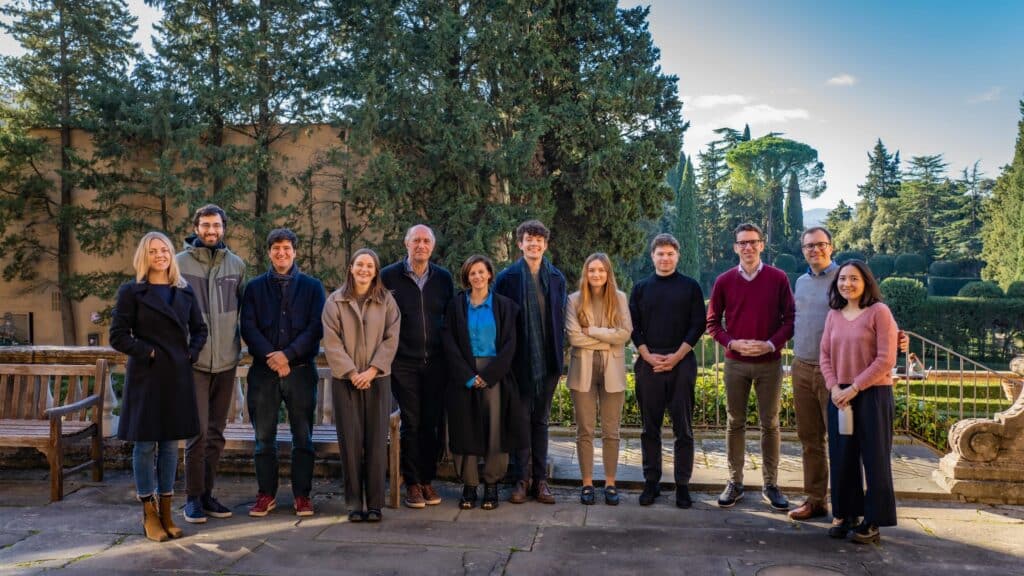Infrastructure of a decarbonised gas system in South-East Europe
This paper examines the infrastructure of a decarbonized gas system in Italy, Greece, Cyprus, Malta, Slovenia, Croatia, Bulgaria and proposes some take-away insights for fostering the European Green Deal in this peripherical yet strategic region.
To enhance the learning experience of the 13th edition of the Specialised Training on the Regulation of Gas Markets, participants were given the opportunity to write a collaborative paper on the current and ongoing challenges relating to decarbonisation, decentralisation, digitalisation and security of supply in a region of their choice. Jitraporn Inchunjiw, Manuel Manuzzi, Lucia Montagano and Nicolas Terracol made up one of the teams selected to share their work on the FSR Knowledge Hub. Read their paper and learn more about Gas Week below!
What are the choices for the infrastructure of a decarbonised gas system in South-East Europe?
At the crossroads of some of the main import routes for natural gas and with a strong potential for the development of renewable sources, the South-East Europe region is a candidate for an ambitious decarbonized development plan that would bring this area to become a transit region for decarbonized gases. However, several structural concerns, from geographic challenges for building infrastructure covering many scattered islands to difficulties in setting up adequate policy frameworks, are seen are major obstacles to achieving the EU targets.
After a policy overview on the EU Strategies and studies released in 2020, hydrogen has been identified as the most cost-reflective energy carrier in which to invest to archive, together with further electrification, towards the full decarbonization of the EU energy system. A SWOT analysis of this region has been performed and specific recommendations for each of these 7 countries have been proposed. From the development of a backbone hydrogen infrastructure in Italy and Greece to the opportunity of decarbonizing islands, among which Member States like Cyprus and Malta, this paper proposes some take-away insights for fostering the European Green Deal in this peripherical yet strategic region.
Read the paper here
The excellent course instructors of FSR Gas Week allowed us to understand the regulation of the gas market after completing the course. We are very grateful to Gas Week’s help and would recommend the course to anyone that needs to have more in-depth insight on gas regulation.
About the Specialised Training on the Regulation of Gas Markets
This year the 13th edition of the Specialised Training on the Regulation of Gas Markets was delivered online. The course started with a four-week block which provided participants with the core knowledge and instruments needed to approach the study of gas markets, regulation and policy. The central part of the training dived into gas market regulation, comparing different regional gas market models and developments, on learning the building blocks of European gas regulation, as well as the future perspectives for gas in the evolving EU gas market’s landscape.
This year, the course focused on the implementation status of gas EU network codes (NCs) with special attention to the Tariff and Balancing NCs. The consequences of the ongoing decarbonisation process of the EU gas sector were discussed- including the impact on TSOs, DSOs, companies and other stakeholders, and the role played by renewable gases. The course offered in-depth insight into the basic concepts of gas regulation with a practical perspective supported by concrete examples and case studies through a series of panel debates and discussions with experts.
To enhance the learning experience of the 13th edition of the Specialised Training on the Regulation of Gas Markets, participants were given the opportunity to write a collaborative paper on the current and ongoing challenges relating to decarbonisation, decentralisation, digitalisation and security of supply in a region of their choice. Focusing in particular on gas infrastructures, each group conducted a SWOT analysis related to the choices and the pathway undertaken by the different countries and discussed opportunities and challenges at various levels through a regional perspective. After pitching the work to a Jury, two papers have been selected to be published on our website.









